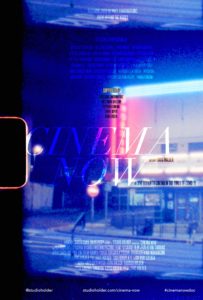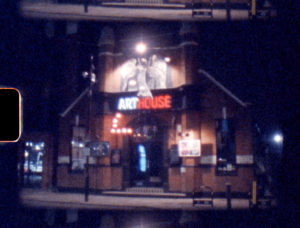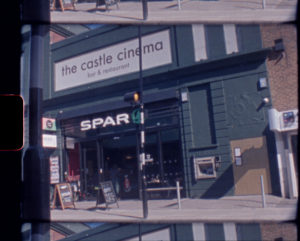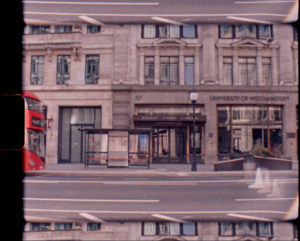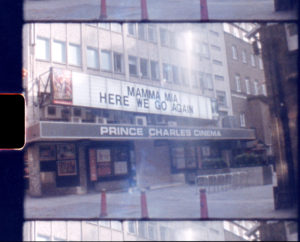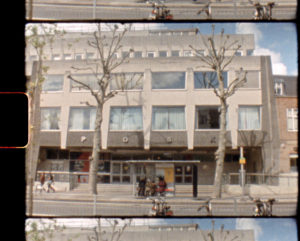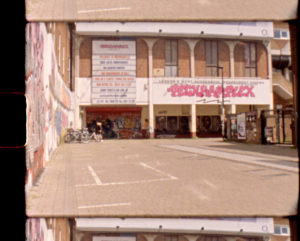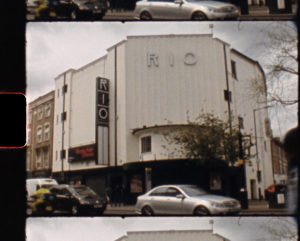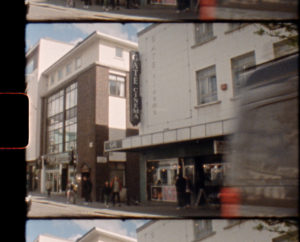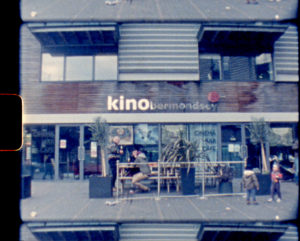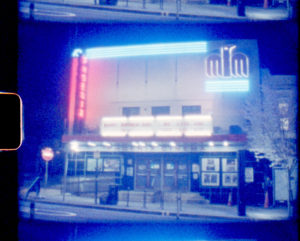
Documentary Short Film Review “Cinema Now”
WATCH THE TRAILER HERE
First, the Recap:
Taking stock of what we’ve lost. It’s never a pleasant or desired circumstance to find ourselves in if this concept is having to be explored in any magnitude, as it usually signals the aftermath of disaster. When sorting through the rubble, whether literal or figurative, the indelible mark left upon us can be harsh, even crippling to an extent, when recovery seems an elusive element to seek. Sometimes, the loss we speak of is tangible, obvious, yet also obscure in some people’s eyes, especially when what’s been forfeited is a staple of life we might usually take for granted–until it’s vanished–leaving in its wake only the shells of what it once was. In the myriad of communities making up London, England, there is such a happening that’s occurred thanks to the ravages of the virus known as COVID-19, and the ripple effect it has upon many a soul is real, palpable, and strangely more disheartening than we might ever have imagined–the loss of cinema in its most traditional form.
Next, my Mind:
The burning heart of bold, unique, creative, meaningful thematic journeys which independent film thrives on and so deftly delivers collides with the equally eccentric, unconventional, avant-garde spirit of experimental cinema to create this new 14-minute documentary short from director/producer/cinematographer/editor Louis Holder, producer Sandra Tomalka, and executive producers John Holder, Gaye Lockwood, and Hannah Holder, presenting a portrait of our contemporary reality as can be so deeply and definitively appreciated and related to by cinephiles worldwide—the seeming “death” of brick and mortar movie theaters. A sad and all-too-real scenario that’s unfolded due to the ongoing repercussions of one annoyingly insidious virus that shall not be named again in this review, the film stands as a testament to all the foundational qualities we find in indie and experimental film, while reminding us just how necessary and vital the genres are to the still persisting legacy the overall art form embodies when given artistic freedom.
Utilizing purposefully and conspicuously grainy cinematography thanks to the film’s format being offered via employing classic Super 8mm Kodak film, the immediate feel one gets is that we’re watching something birthed from antiquity but that clearly showcases the modern actuality the effort’s direction is aiming to display. Likewise, it provides a saddened atmosphere, the intended sense of loss that we as the viewer should experience as the voiceovers then begin, sharing random thoughts about moviegoing in this “narrative’s” context, what it has always meant to them to attend films, while witnessing all the varied theatrical venues around London that were shut down, some potentially permanently, due to this world’s battle with a nasty blight. It soon becomes a deftly resonate statement about indie cinema in particular, stressing how much it’s wished that it could have a wider audience and “voice” that current megaplexes just don’t provide. It is history, longevity, and sheer pride that’s found within the walls of these places, and to preserve them remains paramount.
Furthermore, themes centered on the wonder, the awe, the community, the escape and vastness of liberation from reality the big screen transports us to, and the enjoyment of just being amongst other film fans is all explored through the reflections we hear, even as the visuals depicting life just moving on and rushing past, as the time of filming, mostly derelict houses of inspiration and happiness, leaving us with a perception of abandonment, the dissipation of that needed escape, also highlighted by the fact that watching films from home just isn’t remotely the same. There’s an all-encompassing “encounter” that only a theater can furnish, much less for independent cinema that has that aforementioned uphill battle to begin with when so often relegated to the exact, smaller establishments as are shown here just to have a chance to shine. Soon, it might beg the question as to whether theaters have become overtly mundane or outdated thanks to the onset of streaming services that this current reality and still-present need for distraction has fostered the growth of?
Would we long anymore to return to the cinema or instead consign it to the past? As a strong supporter of independent cinema, this critic ultimately hopes for the former. To truly honor those theaters being depicted throughout the film and are also listed at the end of this documentary, I wish to present them here as well, along with their websites and current operational status, an ode to the beauty of indie film and that desperate hope these venues can continue to provide the opportunity for Londoners to see those and mainstream projects. A hearty “Cheers!!” to: Art House Couch End (OPEN), The Castle Cinema (OPEN), Cine Lumiere (OPEN), The Cinema Museum (OPEN, BUT FIGHTING TO STAY ALIVE), Classic Cinema Club (OPEN), Close-Up Cinema (OPEN), The David Lean Cinema (OPEN, BUT FIGHTING TO STAY ALIVE), Deptford Cinema (FIGHTING FOR LIFE), The Gate Picturehouse (OPEN), Genesis Cinema (OPEN), ICA (OPEN), Kino Bermondsey (OPEN), The Lexi Cinema (OPEN), Peckhamplex (OPEN), Phoenix Cinema (OPEN), Picturehouse Central (OPEN), Pitshanger Cinemas (??), POSK Cinema (OPEN), Prince Charles Cinema (OPEN), Regent Street Cinema (OPEN), Rio Cinema (OPEN), Sands Films (OPEN), UCL Film & TV Society (OPEN), Westminster Film Society (ONLINE), and Whirled Cinema (OPEN).
So, in total, “Cinema Now” is a sublimely uncomplicated, fully engaging, wholly relevant, decidedly timely, and absolutely needed documentary short film that pays impactful tribute to theaters and challenges us as filmgoers to look beyond the world’s current chaos and harken back to those times when a trip to said locale was a given almost each and every weekend in order to abscond from life for a few hours and be whisked away to other realms of entertainment, understanding, fun, and fellowship. May we truly hope, especially for the sake of indie and experimental film in particular, that those theaters who choose to showcase these efforts will allow said works of art to be seen and gain newfound curiosity and appreciation while satisfying those who already value the expressive, innovative, and sometimes flat out visionary cinematic ventures the genres have to bestow.
As always, this is all for your consideration and comment. Until next time, thank you for reading!
